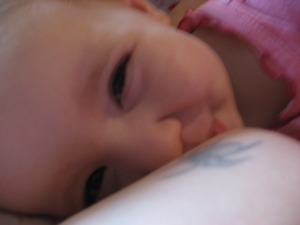 When you have the belief that what is normal is that babies are breastfed (barring circumstances that don’t allow it) and are allowed to choose the time they wean (self-weaning), the term “extended” when attached to breastfeeding can seem not only wrong, but downright insulting. As someone who constantly discusses the evolutionary merit of things like breastfeeding, co-sleeping, and babywearing, I should of course be appalled by the decision to speak of “extended” breastfeeding. There is no such thing. Right?
When you have the belief that what is normal is that babies are breastfed (barring circumstances that don’t allow it) and are allowed to choose the time they wean (self-weaning), the term “extended” when attached to breastfeeding can seem not only wrong, but downright insulting. As someone who constantly discusses the evolutionary merit of things like breastfeeding, co-sleeping, and babywearing, I should of course be appalled by the decision to speak of “extended” breastfeeding. There is no such thing. Right?
Right.
Except.
Except we live in a world where the WHO recommendations to exclusively breastfeed for six months and breastfeed at all for 2 years or beyond (depending on the dyad’s wishes) are often ignored
There’s a problem. And this problem is that we as a society push – both subtly and overtly – the idea that breastfeeding beyond a certain point is “wrong”.
It’s sexual.
It hinders independence.
It’s gross.
It harms your child’s well-being.
Only freaks do it.
We’ve heard it all. And despite the fact that it is entirely biologically, evolutionarily, cross-culturally normal, our society freaks out when a mother decides to breastfeed her child beyond a certain point. This “extended” point if you will. And the use of “extended” simply reinforces this very wrong notion that we should stop breastfeeding at a particular point.
Though there is no meaningful average age of weaning worldwide, children in societies who are allowed to self-wean on their own typically do so between three and four years of age[2]. And this makes any child who nurses beyond a year… normal. In our own worlds and sites, we use terms like “full-term breastfeeding” (or frankly just “breastfeeding”) as they are far more appropriate.
But why not here? Why not always? Shouldn’t we always use the right language? Don’t we do a disservice by not using that language?
Herein lies the dilemma: We live in a modern world where the internet – and in turn, search engines and keywords – rule the day and you have to pick your language very carefully based on who you’re trying to reach. When we’re trying to make mothers feel comfortable with nursing beyond a year, the goal is not to preach to the converted. It is not to make mothers who already do this feel better about themselves (though hopefully that happens too). The goal is to help moms who are searching for information on this feel welcome and comforted that they are not making the wrong decision. That they aren’t freaks. That they won’t harm their children.
These women, who aren’t immersed in a culture where “full-term breastfeeding” is used, will look up the terms they have heard. Often what they have heard are people speaking of “extended breastfeeding”. For their sake, we must make sure that a page like this is one of the first ones to jump up at them. Make sure that they reach a place that assures them to breastfeed your child beyond infancy is 100% normal.
And then tell them about language.
Tell them that the use of “extended” sends implicit messages about breastfeeding that we are trying to remove. That there is nothing “extended” about breastfeeding beyond a year. That for most of human history we have been breastfeeding for far longer than what we consider “normal” now. Biologically speaking, our children are being completely normal when they breastfeed into the toddler and childhood years. This is why we say things like “full-term breastfeeding” to each other.
Now that you are here and reading this, hopefully you will understand why using “extended” can make some of us upset, angry, and frustrated. Even better, hopefully you can stop thinking of it as “extended” and think of it as, quite simply, breastfeeding.
—
[1] http://kellymom.com/fun/trivia/bf-rates-2004/ [2] http://www.kathydettwyler.org/detwean.html


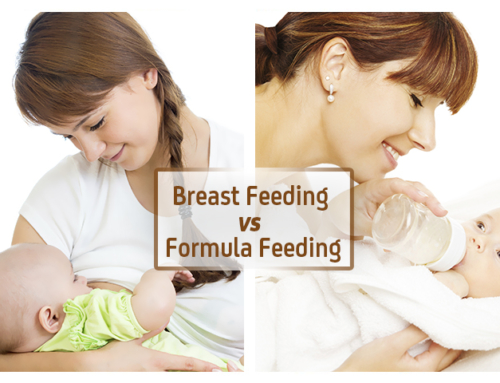
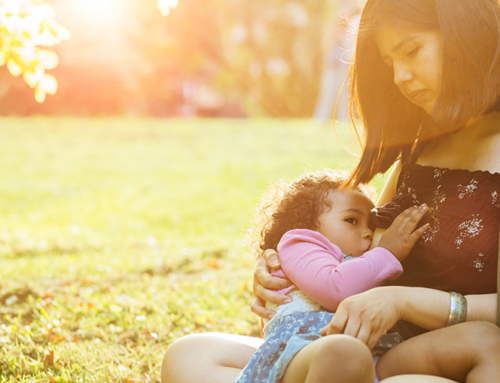
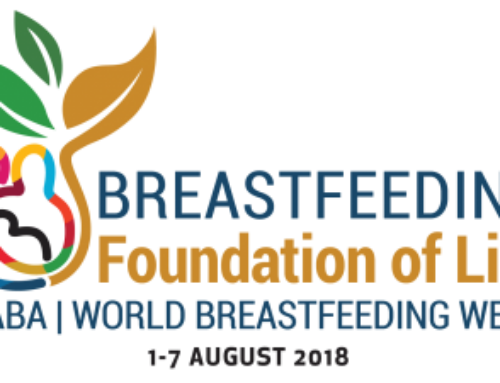
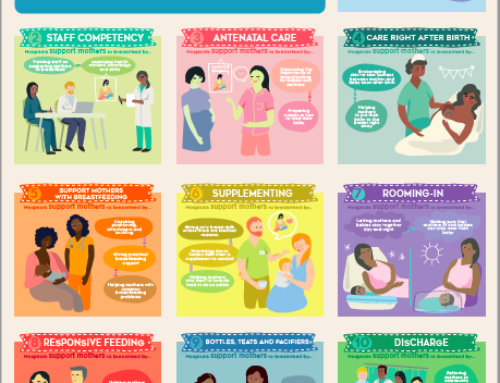
Great article! I’m an IBCLC and am so conscious of the language I use when writing or speaking about breastfeeding. When we use the term, “extended” then it implies that it is not the biological norm -which of course, it is!
I breastfed my daughter until 26 months, and would have kept going longer than that except that I got pregnant again and my milk totally dried up. I felt like such an outlier for breastfeeding her that long, and it was largely a secret. Only a few close friends and family members knew about it. But now that our nursing relationship is over, I’m struck by how short of a period 26 months really was, and I miss it more than I can say.
I wish I could get this information (and maybe more) put on a tiny hand out (maybe tri-fold business card size) for the people who make comments about it. In the US, I tend to think that a lot of these sentiments exist due to marketing (both sub- and super- liminally) and people haven’t actually bothered to turn their brains on the subject. A little bit of well placed facts may help. (PS- I may try and make something like this if my baby gives me the time!)
That would be a great idea. I’ll try and find the time to do a handout on it too 🙂
I love this post. I breastfed our oldest son until he was 2+ – I can’t tell you how or exactly when he weaned but I don’t think there was any drama associated with it. At the time 36 years ago there was much fuss about ‘nursing in public’ – a friend and I always nursed our babies at the mall, no one was any the wiser! ‘People’ also often forget that the nursing relationship by age 2 is most often at home in the mornings and evenings so it’s very personal.
With our second son we nursed until…I don’t know how old he was because it was so perfectly natural. We had a word he could use “Nosh?” which was a socially acceptable request if we were in public and if it was in appropriate at that moment I could just say “When we get home” or “in the car” and he accepted that (probably after about 18 months).
NOW – I am grandma to my youngest son’s daughter, 6 months old. This is a road we experienced nursing mums need to tread gently! My daughter-in-law is still nursing at 6 months but is obviously confused by the pediatrician saying “Your daughter can eat solids with you at each meal”! She should obviously (?) be following up with breastfeeding when the baby shows the need, but doesn’t seem to ‘see’ that need – following advice ‘by the book’?
I have ‘interfered’ once when bub wasn’t making good progress at 4-6 weeks. I booked an appointment with a lactation consultant and then told my daughter-in-law that’s what I’d done! It served its purpose but I don’t advise that route to anyone! Anyway it transpired that bub had a short frenulum which was cut a week later in an in-office procedure by a pediatric ENT. She then began to make excellent and visible developmental and physical progress.
Yesterday I ‘interfered’ again via text suggesting to my daughter-in-law that it is OK to nurse the baby after feeding solids. My son suggested that I stop texting! He is 100% on board with me but as the only breadwinner he is feeling a bit overwhelmed even though he made a conscious choice of wanting his wife to be at home to solely care for their daughter.
My daughter-in-law has become amazingly comfortable with nursing in public using a nursing cape and each group they are with respects that relationship. So I have to give her kudos and complements for coming so far. Her own early life wasn’t easy so to have this most beautiful and happy child and be caring for her so well, largely through the breastfeeding relationship is a huge accomplishment.
I really like the term ‘nursing your baby’ – because that’s what we should be doing – not checking our phones while nursing! I think many people find the term ‘breastfeeding’ to be distasteful, especially if they know nothing about the mechanics or the multitude of awesome benefits.
I tell my daughter-in-law she has come through the hardest time and is now reaping the wonderful benefits of a baby who totally knows her share of the nursing relationship and has fun too!
Beth you are right that an information handout would be great.
As a family we are out and about with young men and women in their late teens and 20s and seeing baby E nurse is something they take for granted now. They are also blown away at bay E’s development and have used her progress in psych papers at college telling her mother “She’s very advanced for her age you know”. By whose standards? Not mine – she’s just where she should be given all the breastfeeding benefits from the start.
Wonderful thoughts!
http://needhelpbreastfeeding.blogspot.com/
I absolutely love your web site (and facebook page). Thanks for the inspiration and for making me stop and think about many aspects of parenting that you bring up. I’ve also found much encouragement from your posts/articles just when I am questioning myself – like reading this article just after I’ve been wondering if I should attempt to wean my son at 20 months upon feeling societal pressure. Also many wonderful references, thank you!
[…] Mom. That said, I don’t like the phrase “extended breastfeeding” – as this post on the brilliant Evolutionary Parenting points out, toddler nursing is “entirely …. My friends all know I’m a breastfeeding advocate so when Jo went to see this marvellous lady […]
I love this! I am still EBFing my 11&1/2 month old…I don’t plan to wean him. I love it and so does he so I think that’s where it should stand…not in the eyes of others. I get a lot of looks when I say I’m still Bfing…(bad /weird looks)..but I’m okay with that 🙂 I am hoping to be the encouragement for other moms that question if they should continue to breastfeed. Some people (including family) suggest I pump and put it in a cup….hahah..ummm no, first of all pumping is NOT fun …second , its not just about nutrition, I have a very sweet baby..BUT, he can quickly become over stimulated or stressed out esp when tired, nursing not only gives him a good time out, it calms him and gives us a good ‘reconnect’ AND thirdly ……Why would I pump if I don’t have to? I am a SAHM this IS My job AND I love it. Bfing has become something I’m VERY passionate about, and again, I’m hoping by me taking a stand I can help other moms be comfortable with something that is so normal, natural and wonderfully healthy for mind/body/soul! I think people are WAY too quick to want their babies to become independent from them…….when in reality they shouldn’t be!
Thanks for the site and the posts!!!